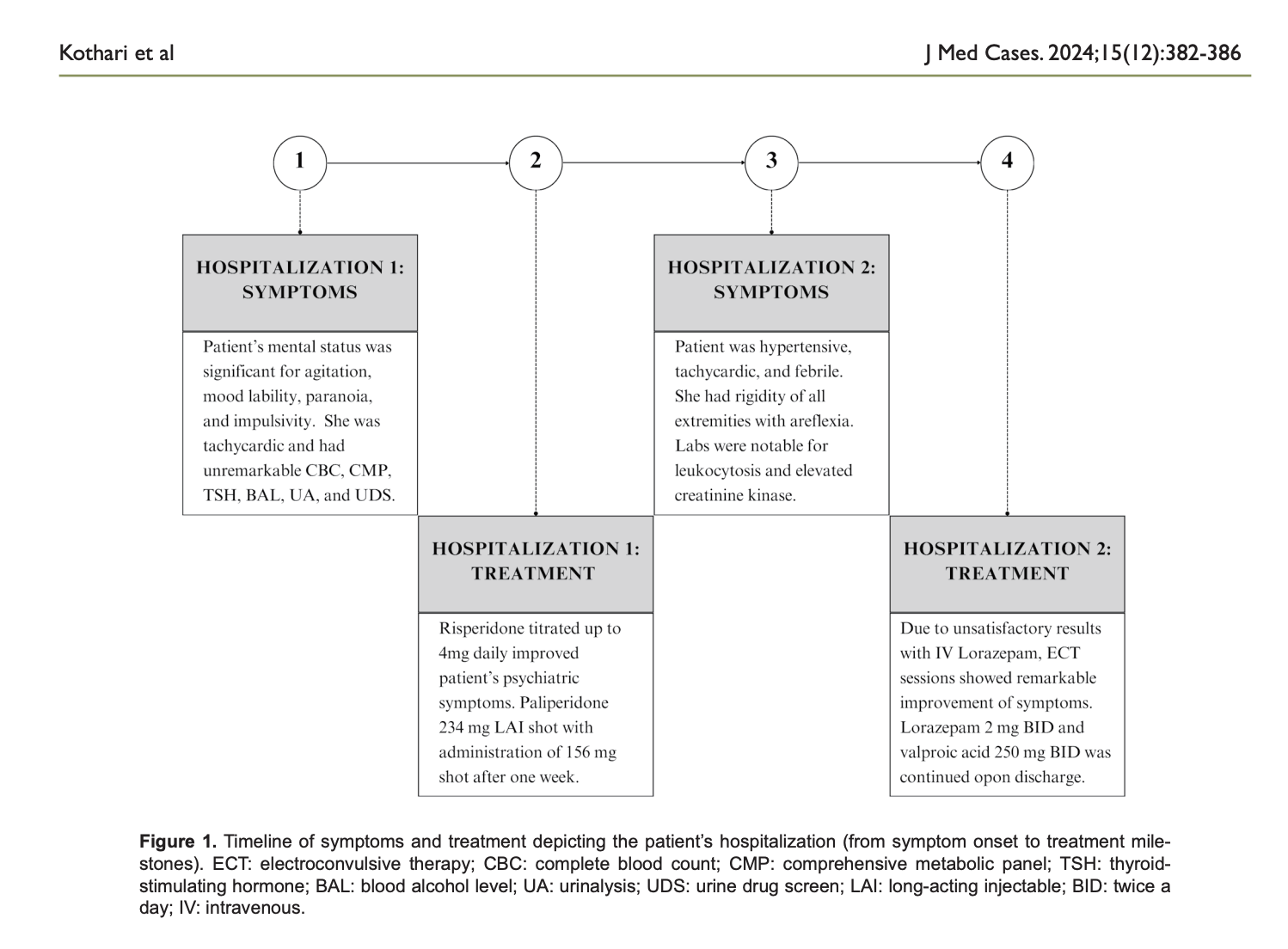Case of Malignant Catatonia From Mississippi
Out on PubMed, from clinicians in Mississippi, is this case report:
An Abnormal Case of Malignant Catatonia in a Previously Healthy Young Female With Unexplained Neurological Symptoms.
J Med Cases. 2024 Dec;15(12):382-386. doi: 10.14740/jmc4327. Epub 2024 Oct 30.PMID: 39610913
The abstract is copied below:
This is a case report of a previously healthy 26-year-old female with unexplained neurological symptoms that eventually developed malignant catatonia. Because malignant catatonia has a range of clinical manifestations, making prompt diagnosis a challenging task. Due to her relapsing symptoms, the patient was admitted to the inpatient psychiatric unit three times in less than 2 months, and eventually recovered with high doses of lorazepam and several electroconvulsive therapy (ECT) treatments after a stay in the intensive care unit (ICU). This case highlights the importance of avoiding of antipsychotics with dopamine blockade prior to administering a standardized catatonia rating scale in patients with negative symptoms, especially those who have unexplained neurological symptoms or vital sign abnormalities. It also emphasizes the importance of definitive decision-making in pursuing ECT treatment for patients with suspected malignant catatonia, as our patient showed remarkable improvement after ECT. Ultimately, more research is needed to study this rare illness to standardize procedures for treatment of malignant catatonia.Keywords: Bush Francis Catatonia Rating Scale; Electroconvulsive therapy; Malignant catatonia.
The report is here.
And from the text:
Here is a complicated case with some diagnostic uncertainty and incomplete presentation of the ECT course.
Nonetheless, the response to ECT was very good, leading to a gratifying outcome.





Comments
Post a Comment